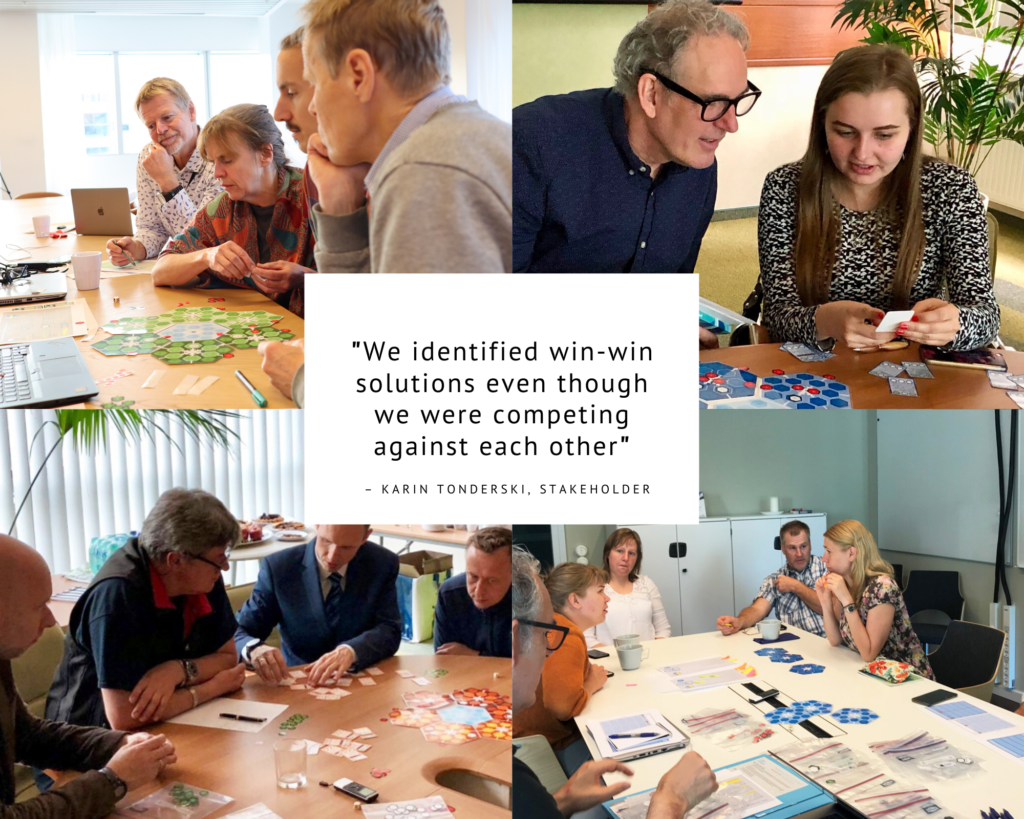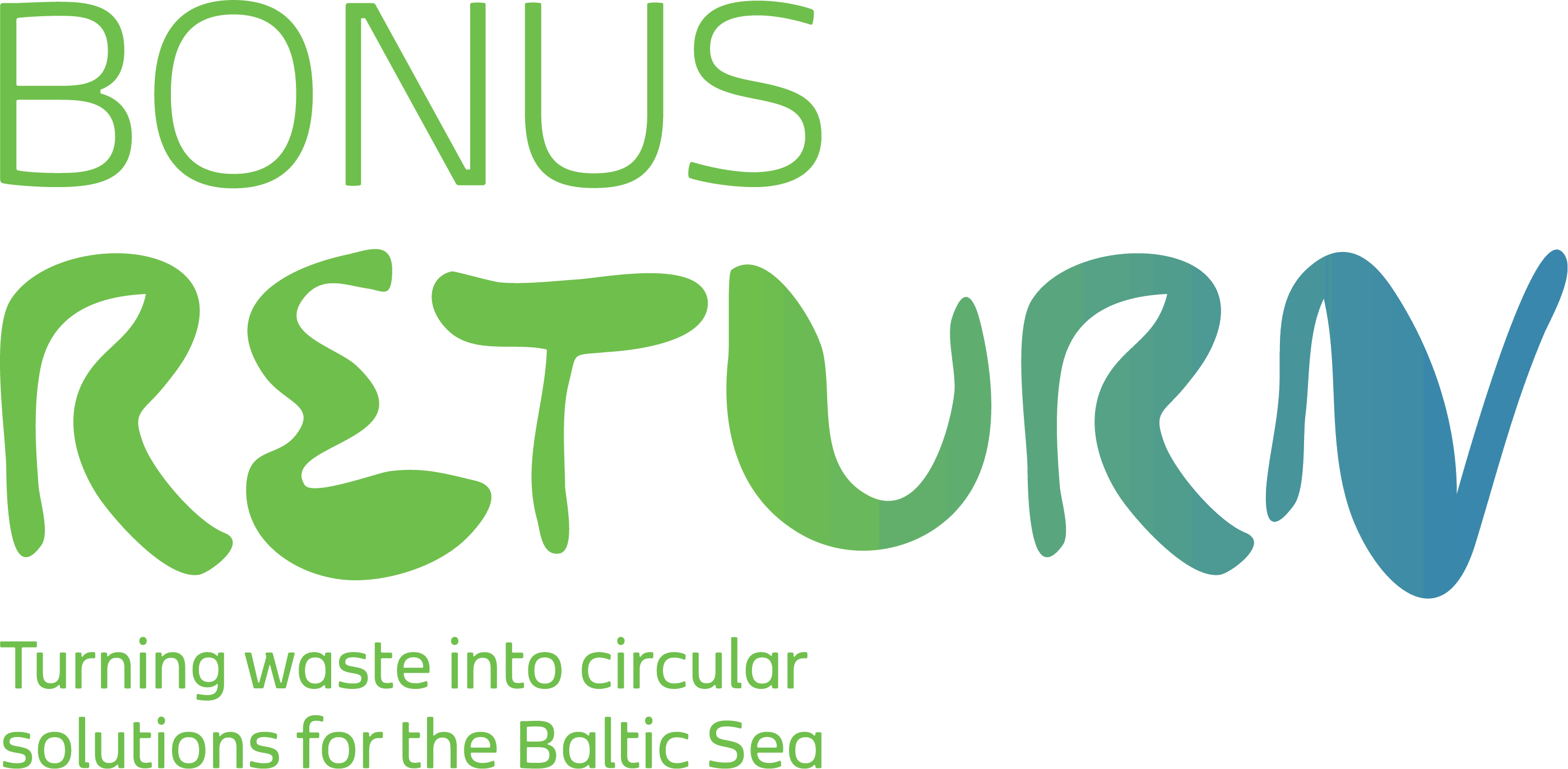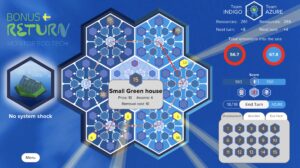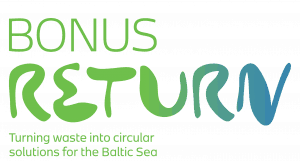The Serious Game System was developed with the aim of drawing on empirical insights generated by the BONUS RETURN project in a creative, safe and inclusive learning space that invites discussions on the feasibility of different constellations of ecotechnologies. Furthermore, it supports participatory evaluation of the impact of ecotechnologies on local contexts in the Baltic Sea region.
The Serious Game System serves as a learning platform to support the selection of constellations of ecotechnologies that reduce nutrient and carbon emissions, maximize co-benefits and have the adaptive capacity to respond to the socio-ecological uncertainties and dynamic policy environments manifested within the Baltic Sea region.
The Serious Game System developed by BONUS RETURN includes a board game, also known as SELECT ECOTECH and a digital game, MONITOR ECOTECH.
Its development process has drawn on emerging data from the project such as: environmental modelling, sustainability analysis, socio-cultural and policy analysis as well as stakeholder knowledge and experience in implementing constellations of ecotechnologies in the project’s three case study catchments, namely Fyrisån in Sweden, Vantaanjoki in Finland and Slupia in Poland. Stakeholders co-developed parts of the Serious Game System in two ways:
-
- Contributing to the game content with their local knowledge of ecotechnologies, land use measures and actions, vulnerability to shocks and disasters.
- Testing and validating the game mechanics.
Their involvement contributed to the development of an increasingly solid and representational Serious Game System in the format of a board game, SELECT ECOTECH and a digital game, MONITOR ECOTECH.
Steven Bachelder, Professor of Game Design at Uppsala University, led the development of the Serious Game System in BONUS RETURN.
Board game – SELECT ECOTECH
The board game, SELECT ECOTECH, is a learning platform that fosters knowledge co-production processes enacted through a series of iterative playing sessions.
SELECT ECOTECH was developed as a platform that can be implemented beyond BONUS RETURN’s case study contexts. It has been utilized during several stakeholder workshops in the project where stakeholders played with and against each other. Some stakeholders reported that the experience enabled them to explore future scenarios within their municipalities and thus make better decisions.
Key attributes of SELECT ECOTECH
- Helps expose dynamics operating in the system, thus enhancing the decision-making capacity.
- Enables co-learning processes that have merit in reconciling multiple demands.
- Inherently inconsequential, thus particularly suited to controversial or complex situations.
- Suitable for hosting learning processes about uncertain future scenarios.

Stakeholders at playtesting workshops.
Read the report
Digital game – MONITOR ECOTECH
MONITOR ECOTECH is an interactive digital version of the Serious Game System underpinned by socio-ecological data and simulated dynamics.
The digital game is based on the preceding board game system, SELECT ECOTECH, further strengthened and facilitated by the computational power of a digital game engine. It keeps track of data and values of the various flows in the system and how these flows are impacted by developments and ecotechnologies as chosen by the players.
Each turn requires the player to make ecotechnology choices that significantly impact the flows of nutrients into the Baltic Sea and the status of different stakeholder interests. MONITOR ECOTECH hosts a series of scenarios and outcomes which further illustrate how a player’s choices and system shocks impact the system.
Key attributes of MONITOR ECOTECH
The digital version is best suited to support participatory monitoring and assessment of the performance of ecotechnologies on account of the following attributes:
- The operational mechanics of the game system are optimized by the computational power making it easier and faster to play.
- The capacity for tracking nutrient emissions and resources is greater.
- It is easier to play longer and several game sessions. This allows players to choose and monitor ecotechnologies for best performance in situations characterised by disaster risks or system shocks.
- Being able to play several games in rapid succession affords players the ability to try out different practices and strategies related to selecting and implementing ecotechnologies.
- It is possible to track and monitor emissions as they enter the Baltic Sea as well as causal relationships between player actions and emissions.
Stakeholders can use the Serious Game System to inform their decision-making
The open and iterative structures of the Serious Game System support decision making connected to selecting and implementing ecotechnologies under complex real world conditions. These stimulate players’ anticipation of future uncertainties – from climate change to other interconnected challenges within the Baltic Sea region. The Serious Game System provides the space to explore and experiment innovative constellations of ecotechnologies that have the capacity to create further synergies.
“At certain points we identified win-win solutions even though we were competing against each other. It would happen that something I needed to do such as implementing an ecotechnology, would benefit a fellow contestant.”
— Karin Tonderski, professor at Linköping University
Karin Tonderski, one of the stakeholders who participated in play testing workshops, gives her reflections on the Serious Game System.
The Serious Game System can be used beyond the scope of BONUS RETURN. The game requires a skilled facilitator and can be played in different organizational settings. The game can also support learning processes and decision-making related to the selection and implementation of different constellations of ecotechnologies and other environmental measures. A few examples of potential users of the Serious Game System include: regional authorities, municipalities, interest organizations, water management companies, NGOs and farmers’ associations.



